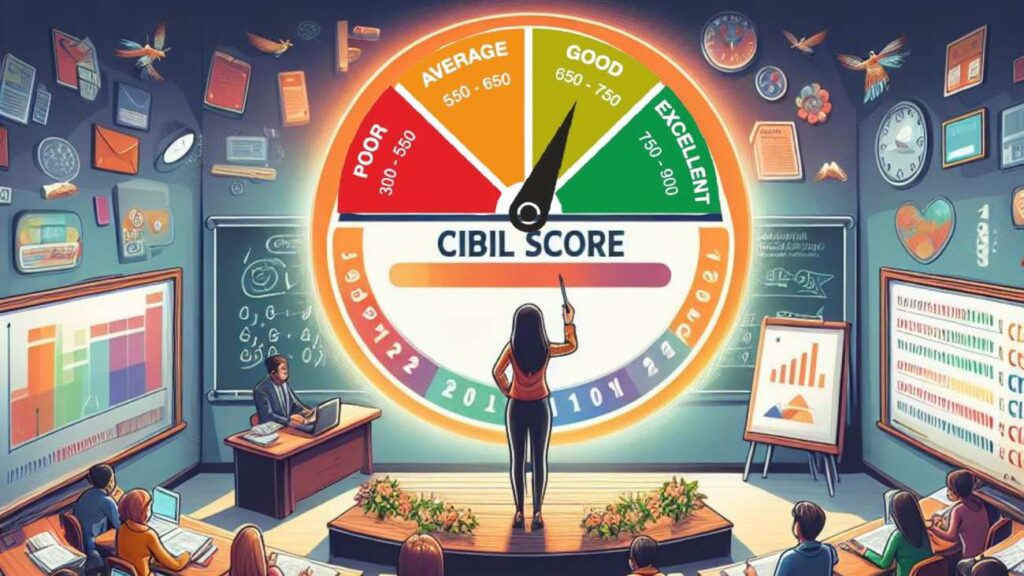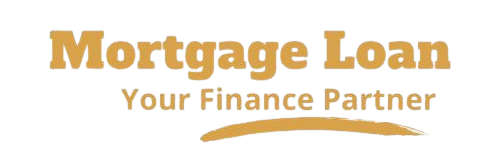Table of Contents
ToggleMaster Your Mortgage: Essential Documents You Can’t Overlook

1. Understanding the Mortgage Loan Process
Purchasing a home is an exciting milestone, it can also be a complex process. One of the most crucial aspects of securing a mortgage loan is gathering the necessary documents. In this comprehensive guide, we will explore the essential documents required throughout the mortgage loan process. We’ll delve into various topics, including different types of mortgage loans, factors impacting loan approval, finding the right lender, the loan application process, and tips for organizing and managing mortgage documents effectively. By following these guidelines, you will navigate the mortgage loan journey with ease and ensure a smooth process.
2. Types of Mortgage Loans
1. Fixed-rate mortgages
One of the most common types of mortgage loans is a fixed-rate mortgage. With this type of loan, the interest rate remains constant throughout the loan term. This stability allows borrowers to plan their finances efficiently, knowing that their monthly mortgage payments will remain the same.
2. Adjustable-rate mortgages
Unlike fixed-rate mortgages, adjustable-rate mortgages (ARMs) have interest rates that fluctuate over time. Typically, ARMs start with a fixed rate for an initial period and then adjust periodically based on market conditions. While ARMs may offer lower initial interest rates, borrowers should carefully consider their long-term financial plans before choosing this type of loan.
3. Government-backed mortgages (FHA, VA, USDA)
Government-backed mortgages are insured by federal agencies, making them less risky for lenders. The Federal Housing Administration (FHA) offers loans for first-time homebuyers with low down payment requirements. Veterans Affairs (VA) loans provide support for eligible military veterans and their families. The United States Department of Agriculture (USDA) offers loans to promote rural home ownership.
4. Jumbo loans
Jumbo loans are designed for high-value properties that exceed conventional loan limits. These loans typically have stricter qualification requirements, including higher credit scores and lower debt-to-income ratios. Borrowers who are purchasing luxury homes or properties in high-cost areas may consider jumbo loans.
5. Interest-only mortgages
Interest-only mortgages allow borrowers to make lower initial monthly payments by only paying the interest for a specified period. However, after the interest-only period ends, borrowers must start making principal payments and may face higher monthly payments. It is crucial to fully understand the terms and risks associated with interest-only mortgages before choosing this option.
3. Factors Impacting Mortgage Loan Approval
Securing a mortgage loan requires meeting certain criteria set by lenders. Here are some key factors that can impact the approval process:
1. Credit score and credit history
Lenders assess borrowers’ credit scores and credit history to determine their reliability in repaying loans. A higher credit score generally results in more favorable loan terms and interest rates.

2. Debt-to-income ratio
Lenders evaluate borrowers’ debt-to-income ratios, which compare their monthly debt payments to their income. A lower debt-to-income ratio indicates a borrower’s ability to comfortably manage mortgage payments.
3. Employment history and income stability
A stable employment history and consistent income demonstrate a borrower’s reliability in meeting financial obligations. Lenders typically require proof of employment and income, such as pay stubs or income statements.
4. Loan-to-value ratio
The loan-to-value (LTV) ratio compares the loan amount to the appraised value of the property. A lower LTV ratio reduces the lender’s risk and may result in more favorable loan terms.
5. Down payment requirements
A larger down payment can decrease the loan amount and potentially lower monthly mortgage payments. Lenders often require a certain percentage of the home’s purchase price as a down payment.
4. Finding the Right Mortgage Lender
Choosing the right mortgage lender is crucial for a smooth loan process. Consider the following factors when selecting a lender:
1. Researching and comparing lenders
Take the time to research and compare different lenders. Look for reviews, testimonials, and ratings to gauge their reputation and customer satisfaction levels.
2. Factors to consider when choosing a lender
Consider factors such as loan options, interest rates, fees, customer service, and the lender’s responsiveness. It’s essential to find a lender that aligns with your financial goals and provides personalized guidance.
3. Loan pre-approval process
Before you start house hunting, it’s beneficial to get pre-approved for a loan. Pre-approval involves submitting financial documents to a lender, who will assess your eligibility and provide an estimate of the loan amount you qualify for.

4. Importance of working with a reliable and trustworthy lender
Working with a reliable and trustworthy lender is crucial to ensure a seamless loan process. They will guide you through the process, communicate effectively, and provide support when needed.
5. The Mortgage Loan Application Process
Once you’ve found a lender, it’s time to navigate the mortgage loan application process. Here are the key steps involved:
Read Similar Content: Demystifying the Loan Application Process: A Step-by- Guide to Secure Financing
1. Gathering necessary documentation
To complete the loan application, gather essential documents such as proof of identity, residency, income and employment, financial statements and assets, credit and debt information, and property information.
2. Completing the loan application
Submit the loan application to your lender along with the required documents. Ensure all information is accurate and complete to avoid delays in the loan approval process.
3. Understanding the loan estimate and closing disclosure
Upon submitting the loan application, the lender will provide a Loan Estimate, detailing the loan terms, projected payments, and closing costs. Before closing, you will receive a Closing Disclosure that outlines the final terms.
4. Submitting the application to the lender
After reviewing the loan estimate and signing the Closing Disclosure, submit the necessary documents to your lender for further processing.
5. Timelines and key milestones
Be aware of the timelines and key milestones involved in the loan process. Communicate with your lender and real estate agent to stay informed and avoid missing any deadlines.
6. Essential Documents for a Mortgage Loan
Now that you understand the mortgage loan process, let’s explore the essential documents required to secure a loan:
1. Proof of Identity and Residence
When applying for a mortgage loan, you will need to provide valid identification documents such as a passport or driver’s license. Additionally, proof of residency, such as utility bills or a lease agreement, is required. To verify your identity further, lenders may require Social Security Number (SSN) verification.
2. Proof of Income and Employment
Lenders need to verify your income and employment as a part of the loan approval process. Provide pay stubs, income statements, and an employment verification letter from your employer. W-2 forms or tax returns may also be required. If you have additional sources of income, such as rental properties or self-employment, provide supporting documents.
3. Financial Statements and Assets
To demonstrate your financial stability, provide bank statements for the last few months. If you have investment or retirement accounts, include statements from those accounts as well. Proof of your down payment and closing costs will be required. If you’re receiving funds as a gift, a gift letter will be necessary.
4. Credit and Debt Information
Lenders assess your creditworthiness by evaluating your credit reports from all three major credit bureaus. Be prepared to explain any derogatory credit history. Provide details of existing debts, including credit cards and loans. If you have student loans or pay child support or alimony, gather the necessary documentation to support these obligations.
5. Property Information and Appraisal
Provide any relevant documents related to the property you’re purchasing, such as the purchase agreement or contract. Your lender will require a property appraisal report to determine its value accurately. Additionally, gather information about any homeowner’s association (HOA) fees and insurance policies. If a home inspection was conducted, include the inspection report.
7. Tips for Organizing and Managing Mortgage Documents
Managing the extensive documentation involved in the mortgage loan process can be overwhelming. Here are some tips to stay organized:
1. Creating a Document Checklist
Create a comprehensive document checklist to ensure you gather all the required paperwork. Categorize and organize your documents based on the lender’s requirements to streamline the process.
2. Keeping Track of Deadlines and Timelines
Understand the key deadlines and milestones involved in the loan process. Set reminders for important dates and organize your documents accordingly. Effective communication with your lender is crucial to stay on track.
3. Safeguarding Personal and Financial Information
Protecting your personal and financial information is of utmost importance. Use secure digital storage options to store sensitive documents. If disposing of physical documents, shred them securely. Be cautious when sharing personal or financial information online.
4. Collaborating with Your Mortgage Team
Establish clear channels of communication with your mortgage team. Provide documents promptly and accurately, seeking clarification when needed. Regularly follow up to ensure a smooth process.
5. Maintaining Records for Future Reference
Organize your mortgage documents for post-closing purposes. Retain important documents, such as the loan agreement and closing disclosure, for reference. Maintain both digital and physical copies in a secure manner.
CONCLUSION :

This comprehensive guide has explored the essential documents required for a mortgage loan. We discussed the mortgage loan process, different types of loans, factors impacting loan approval, finding the right lender, and the mortgage loan application process. We also provided detailed information about the necessary documents related to proof of identity and residency, income and employment, financial statements and assets, credit and debt information, as well as property information and appraisal. By following these guidelines, you will navigate the mortgage loan journey with ease and ensure a smooth process.
9. FAQs (Frequently Asked Questions)
Q1: What happens if I cannot provide all the required documents?
Not providing all the required documents may delay or even prevent the loan approval process. It is essential to communicate with your lender if you are unable to provide certain documents and discuss alternative options or solutions.
Q2: How long does it take to get a mortgage loan approved?
The time it takes to get a mortgage loan approved can vary depending on various factors, including the lender’s processes and workload, the complexity of the loan, and how quickly you provide the necessary documentation. On average, it can take anywhere from 30 to 60 days.
Q3: Can I use electronic signatures for signing mortgage documents?
Yes, electronic signatures are widely accepted for signing mortgage documents. They provide convenience and speed up the loan process. Ensure that you use secure and trusted platforms that comply with legal requirements.
Q4: Are there any alternatives to traditional mortgage loans?
Yes, there are alternative mortgage options available, such as private lender loans, peer-to-peer lending, and lease-to-own agreements. It’s essential to thoroughly research and understand the terms and risks associated with these alternatives before pursuing them.
Q5: What are the consequences of providing false information on mortgage loan documents?
Providing false information on mortgage loan documents is considered fraud and can have severe consequences. It can lead to legal penalties, loan denial, and damage to your credit history. Always provide accurate and truthful information to ensure a smooth and ethical loan process.
